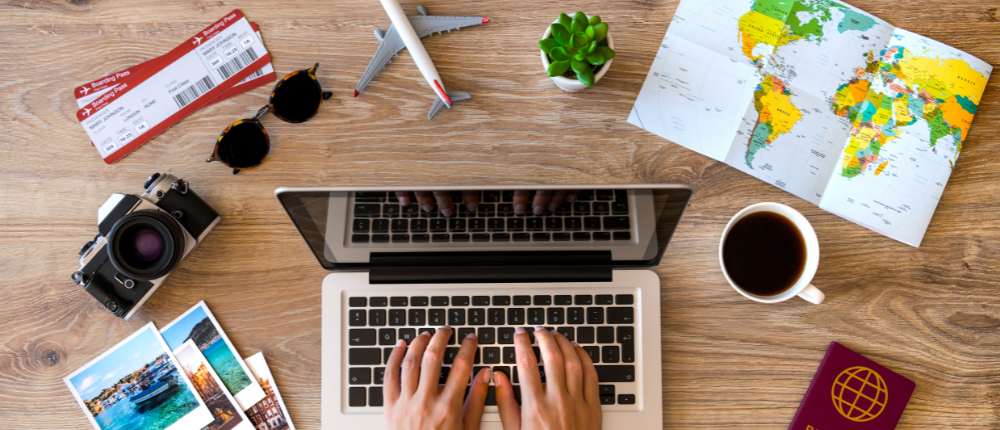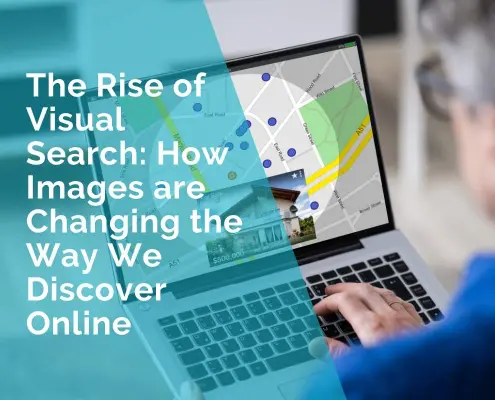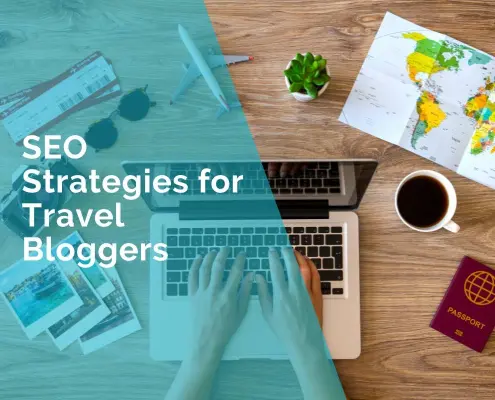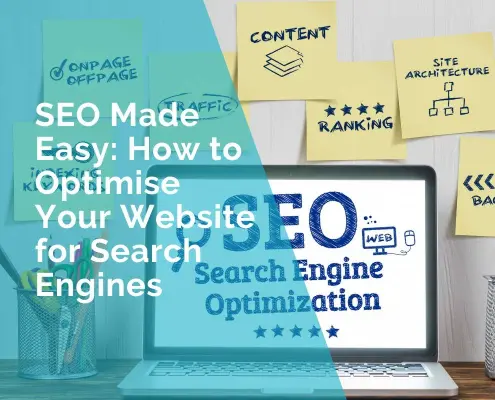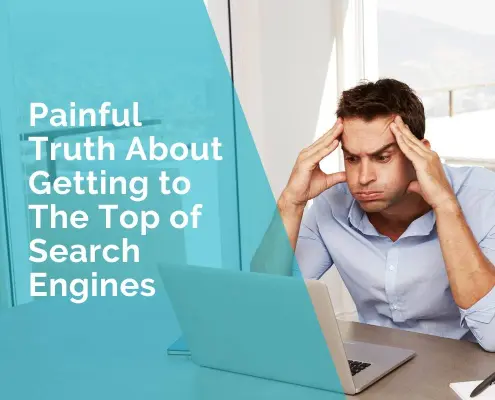SEO Strategies for Travel Bloggers: Don’t Get Lost in the Search Engine Wilderness
As a travel blogger, you know that the world of SEO can sometimes feel like a jungle. But don’t worry … with a few key SEO strategies and a little bit of humour, you can become a master of the SEO wilderness and attract more readers to your blog.
Keyword Research: Find Your Traveler’s Treasure Map
Think of keyword research as your treasure map, leading you to the hidden gems that your readers are searching for.
But unlike a pirate’s map, keyword research is not a one-time thing. You need to continuously update your map to keep up with the changing trends and preferences of your audience.
Consider using tools such as Ahrefs or SEMrush to find keywords for your blog. Alternatively Google Keyword planner is a good alternative if you are looking for a free option.
Be careful not to go overboard with stuffing your content with keywords. Imagine your keywords as spices in a dish. A little bit goes a long way to enhance the flavor, but too much can ruin the whole thing.
Here are some ideas on keywords to explore:
Destination Keywords:
Keywords related to specific travel destinations, such as “best beaches in Bali,” “things to do in Paris,” or “food in Thailand.”
Activity Keywords:
Keywords related to specific travel activities, such as “hiking trails in the Swiss Alps,” “scuba diving in the Great Barrier Reef,” or “wine tasting in Napa Valley.”
Seasonal Keywords:
Keywords related to specific travel seasons, such as “skiing in Colorado in winter,” “fall foliage in New England,” or “summer festivals in Europe.”
Event Keywords:
Keywords related to specific travel events or festivals, such as “Oktoberfest in Munich,” “Carnival in Rio de Janeiro,” or “Coachella Music Festival.”
Travel Tips Keywords:
Keywords related to travel tips and advice, such as “packing for a backpacking trip,” “how to save money on flights,” or “solo travel tips for women.”
Accommodation Keywords: Keywords related to specific types of accommodation, such as “luxury hotels in Bali,” “budget hostels in Europe,” or “treehouse rentals in Costa Rica.”
Optimize Your Content: Your Backpack of SEO Essentials
Think of your target keywords as the GPS coordinates for your content’s location on the vast terrain of the internet. Just like you need precise coordinates to navigate through an unfamiliar wilderness, search engines need clear signals to understand what your content is all about and where to place it in search results. This is where SEO strategies come in handy.
Your keywords act as the coordinates, helping search engines pinpoint your content and bring it to the attention of potential readers.
But, just like you wouldn’t venture into the wilderness without your other essentials like a map, compass, and water, your content needs additional components to optimize its ranking potential.
Your headings, meta descriptions, and alt tags for images act as those other essentials, helping search engines gain a fuller understanding of your content and ultimately improving its visibility in search results.
By combining your keywords with these other components, you’re giving your content the best chance of success in the search engine jungle.
Here’s an example of how you might incorporate a keyword into a piece of content:
Keyword: “Best beaches in Nusa Dua”
Headline: “Discover the Top 5 Best Beaches in Nusa Dua for Your Ultimate Tropical Getaway”
Alt Tag: “View of Nusa Dua Beach in Bali”
Meta Description: “From the iconic Nusa Dua Beach to the beautiful shores of Geger Beach, we’ve rounded up the ultimate list of the best beaches in Nusa Dua. Get ready to soak up the sun and relax in paradise!”
In this example, the keyword “Best beaches in Nusa Dua” is incorporated into the headline and meta description, giving search engines a clear understanding of the content’s topic.
The alt tag for the image also includes a reference to Bali, further reinforcing the content’s relevance to the target keyword. By using these components together, you are increasing the chances of their content being discovered by readers searching for information on Nusa Dua’s best beaches.
Technical SEO: The GPS for Your Website
When it comes to optimizing your website for search engines, technical SEO acts as the GPS that guides search engines to find and understand your content.
Technical SEO is all about ensuring that your website is technically sound and structured in a way that search engines can easily crawl and index.
Think of your website as a destination on the vast map of the internet. Just like you need a precise address to navigate to a specific location, search engines need a clear understanding of your website’s structure and content to display it in search results.
Technical SEO provides search engines with that clarity, ensuring that your website is easy to find and understand.
Some essential technical SEO factors include website speed, mobile-friendliness, URL structure, and meta tags.
For example, if your website takes too long to load or isn’t mobile-friendly, search engines may have trouble crawling it, and potential readers may abandon it before they even see your content.
Additionally, if your URLs are confusing or your meta tags are missing or inaccurate, search engines may not understand what your website is about, and your ranking potential could suffer.
Link Building: Making Friends in the Jungle
Link building is like making friends in the jungle. You want to build relationships with other websites in your niche and establish trust with search engines.
Think of backlinks as a referral from a friend. If a friend recommends a new restaurant to you, you’re more likely to trust their recommendation and try it out. The same goes for search engines. If a reputable website links to your content, it signals to search engines that your content is trustworthy and valuable. As a travel blogger consider getting backlinks from other travel websites, such as travel agents, travel boards, online travel publications and blogs.
But how do you get backlinks?
Here are some suggestions.
Create Content That Others Will Want to Link to:
The foundation of any effective backlink strategy is creating high-quality content that people want to link to. This could include travel guides, destination reviews, or personal stories that resonate with your audience.
Guest Blogging:
Guest blogging means writing blog posts for other websites in the same industry and including a link back to your own blog or website. Guest blogging can also help bring new readers to your website.
Social Media Promotion:
Sharing your content on social media platforms such as Instagram, Facebook or Pinterest can help to increase its visibility and attract valuable links. The more followers interact with your content, the better. It also increases chances that others will link to it.
Collaborations and Partnerships:
Collaborating with other bloggers or partnering with travel companies can help to increase your website’s exposure and attract new backlinks. By working together, you can create valuable content that benefits you both.
User Experience: Creating a Smooth Journey for Your Travel Blog Readers
When it comes to travel blogging, the user experience (UX) is just as important as the content itself. Your readers want to feel like they’re embarking on a journey, not just reading a generic blog post. Here are some tips to help you create an unforgettable user experience on your travel blog:
Design a visually appealing website:
First impressions matter, so make sure your website design is eye-catching and welcoming. Use high-quality images and videos to showcase your travel destinations, and use a color scheme and layout that aligns with your blog’s brand and theme.
Optimize for mobile devices:
With more people accessing the internet on their mobile phones, it’s important that your travel blog is mobile responsive. What that means is that your website looks great and functions smoothly on screens of all sizes.
Make it easy to navigate:
Your website should be easy to navigate, with clear categories and a logical content hierarchy. Use descriptive headings and subheadings to help readers find the information they’re looking for, and include a search bar for added convenience.
Engage your readers:
Encourage your readers to interact with your content by including polls, surveys, and social media sharing buttons. This not only creates a more engaging user experience, but it also helps to increase your blog’s visibility and reach.
The world of search engine optimization may seem like a daunting and unfamiliar wilderness for travel bloggers, but with the right strategies in place, you can navigate it with ease and rise above the competition. By conducting thorough keyword research, optimizing your content, ensuring technical soundness, and implementing effective link-building tactics, you can establish a strong online presence and attract a steady flow of traffic to your travel blog. So, don’t get lost in the search engine wilderness – take action today and watch your blog thrive!
 Ivana Katz from Websites 4 Small Business is an award winning web designer who builds websites that build your business. She provides unbeatable web design services to fit your budget.
Ivana Katz from Websites 4 Small Business is an award winning web designer who builds websites that build your business. She provides unbeatable web design services to fit your budget.
